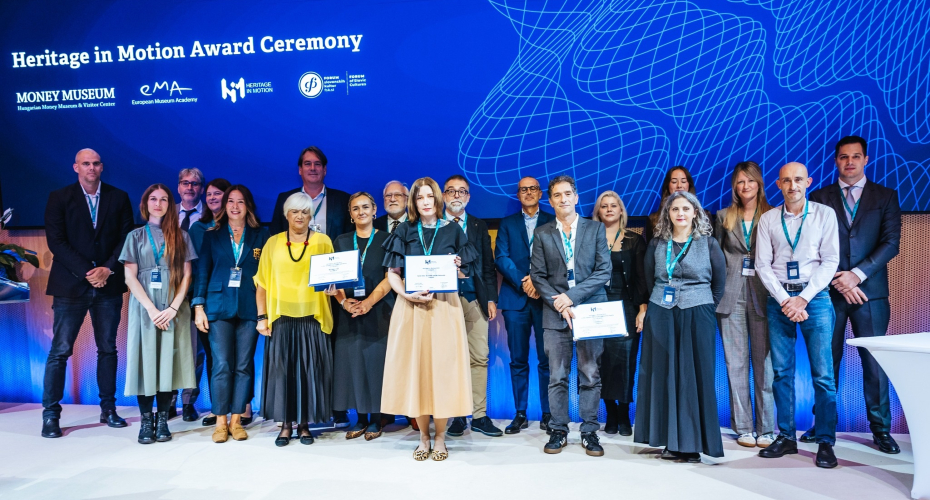An international project translating history and heritage into accessible audiovisual tourist guides has won a European award for its innovative use of Augmented Reality.
HistoryCity, which provides free GPS-triggered period maps to tell immersive first-person stories rooted in historical research, won the Virtual and Augmented Reality category at this year's Heritage in Motion Awards ahead of four other finalists.
Run by the European Museum Academy and Forum of Slavic Cultures, the awards showcase how multimedia and digital tools are transforming the ways cultural heritage is preserved, communicated, and experienced. This year's competition drew submissions from 22 countries across four continents - the first time in its 11-year history that the competition has been a global one.
HistoryCity is led by Professor Fabrizio Nevola and Dr David Rosenthal, both of the Department of Languages, Cultures and Visual Studies at the University of Exeter. Dr Rosenthal travelled to the Money Museum in Budapest, Hungary, to accept the prize on behalf of the team and an extensive list of collaborators.
He said: "It's brilliant to be recognised for all the effort we've put in over the last few years to develop HistoryCity and our AR and immersive storytelling practice, which has led to the kind of diverse trails you'll find on the Hidden Venice and Hidden Trento apps. It also recognises the outstanding creative collaborations - with historians, curators, voice actors, and so on - that are behind these and all our app trails."
HistoryCity encompasses multiple interactive tourist trails for major cultural destinations, including Valencia, Copenhagen, and Hamburg. In its submission to the Heritage in Motion Awards, however, the team entered the two most recent projects, encompassing three trails for Hidden Venice, and one for Hidden Trento 'The Fascist City'.

Awarding the prize - one of three announced on the night - the judges praised the project for "… its innovative use of extended reality to create immersive "living history" trails that connect people, places, and stories. By blending first-person narratives, expert commentary, and historical collections, HistoryCity expands the boundaries of cultural heritage and promotes an engaging "museum without walls" experience."
Key partners helped to bring together the new apps, including the Centre for Digital and Public History at Ca' Foscari, University of Venice; and Fondazione Bruno Kessler – Instituto Storico Italo-Germanico.
Among the historians who collaborated with the Exeter team were Celeste McNamara (Dublin City University), Rosa Salzberg (University of Trento), Massimo Rospocher (FBK), Alessandro Paris; and numerous historians at the University of Trento; Fondazione Museo Storico del Trentino; and Soprintendenza per i beni e le attività culturali di Trento.
HistoryCity has been running for more than a decade and has pioneered research-driven, accessible situated living history using smartphones, while championing a 'museum without walls' approach to cultural capital. The apps are free and link sites off the typical tourist itinerary to the lives of diverse historical figures.






